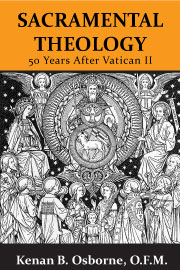On our journey to heaven, the three primary means of knowing God are reading/studying the Bible, prayer, and receiving the sacraments. There is something that combines two of these three! The Book of Psalms (right in the very middle of the Bible) are prayers that God has given us to pray to Him. Just as Jesus models prayer with the Lord’s Prayer, so too does YHWH use David and others to model prayer via the psalms.
 He gave them to us in the Hebrew language through the inspiration of the Holy Spirit; in order to pray them we have translations— a number of them. There are numerous translations due to preferences of different sects within Christendom, translations to conform to the English language in different time periods and dialects, and to address different purposes for the translation. Yes, translations have different purposes or goals: one might be intended for liturgical use (NAB, NABRE), others for musical usage (Grailville). Still others for formatting (Jesus’ words in red) or for ecumenical audiences (RSV, NRSV).
He gave them to us in the Hebrew language through the inspiration of the Holy Spirit; in order to pray them we have translations— a number of them. There are numerous translations due to preferences of different sects within Christendom, translations to conform to the English language in different time periods and dialects, and to address different purposes for the translation. Yes, translations have different purposes or goals: one might be intended for liturgical use (NAB, NABRE), others for musical usage (Grailville). Still others for formatting (Jesus’ words in red) or for ecumenical audiences (RSV, NRSV).
The newest translation— Psalms as Personal Prayer, an Intimate Translation— has just been released with the purpose of personal prayer engendering an intimacy with my Creator and Redeemer; coincidentally it also has the goal of being the most true to the original— inspired— Hebrew language. To do so it scrupulously holds to the Bible’s overall message, and to the poetry within the Psalms.
Spoiler alert: I am the translator of these psalms! My study of the Hebrew language at Mount St. Mary’s School of Theology (aka The Athenaeum of Ohio) and two decades of teaching the Psalms and Scripture as a whole have prepared me for this, my life’s work. It is available strictly as an eBook (Apple or Kindle). See the web page where you can get details and subscribe to your own copy that you can download to your multiple devices connected with your online account.
https://www.lectiopublishing.com/books.php?b=32
This can be used in conjunction with your Liturgy of the Hours (Morning and Evening Christian Prayer), your own devotional or prayer regimen, or while waiting in line throughout the day! Please let me know your experience with these. When you go online to the purchase page at your preferred vendor, you’ll be able to see an excerpt. I hope you will find this translation a blessing and helpful boost to your prayer life. And, oh yes I have written commentaries after a number of these psalms.

 The author is Franciscan theologian Kenan B. Osborne, O.F.M., a scholar of international repute and is Professor Emeritus of Systematic Theology at the Franciscan School of Theology/Graduate Theological Union in Berkeley, CA where he taught for over 30 years. He is a frequent guest lecturer at numerous colleges and universities throughout the U.S. and the world, mostly recently in China and Korea. He is considered an expert in Christology, the sacraments, the permanent diaconate, post-Vatican II theology, and contemporary and Chinese philosophy.
The author is Franciscan theologian Kenan B. Osborne, O.F.M., a scholar of international repute and is Professor Emeritus of Systematic Theology at the Franciscan School of Theology/Graduate Theological Union in Berkeley, CA where he taught for over 30 years. He is a frequent guest lecturer at numerous colleges and universities throughout the U.S. and the world, mostly recently in China and Korea. He is considered an expert in Christology, the sacraments, the permanent diaconate, post-Vatican II theology, and contemporary and Chinese philosophy.